Other uses
- Griselda Records, American hip hop collective and record label
- "Griselda", a song from the 1976 album Have Moicy! by Peter Stampfel
- Griselda (miniseries), a Netflix show based on the life of Griselda Blanco
Griselda is a feminine given name.
Griselda may also refer to:
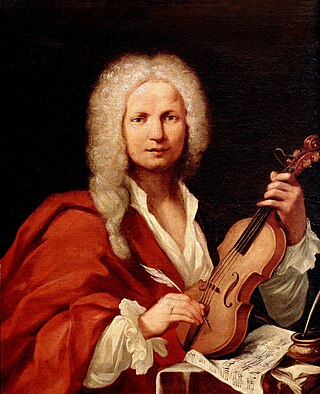
Antonio Lucio Vivaldi was an Italian composer, virtuoso violinist and impresario of Baroque music. Along with Johann Sebastian Bach and George Frideric Handel, Vivaldi ranks amongst the greatest Baroque composers and his influence during his lifetime was widespread across Europe, giving origin to many imitators and admirers. He pioneered many developments in orchestration, violin technique and programmatic music. He consolidated the emerging concerto form into a widely accepted and followed idiom.

Giovanni Bononcini was an Italian Baroque composer, cellist, singer and teacher, one of a family of string players and composers.
The year 1723 in music involved some significant events.
The year 1721 in music involved some significant events.
This article lists the most significant events and works of the year 1720 in music.
The year 1718 in music involved some significant events.
The year 1703 in music involved some significant events.

Griselda is a figure in European folklore noted for her patience and obedience.
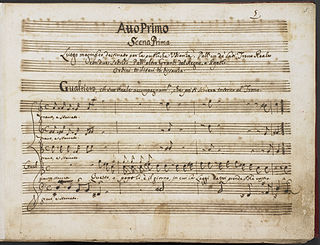
Griselda is an opera seria in three acts by the Italian composer Alessandro Scarlatti, the last of Scarlatti’s operas to survive completely today. The libretto is by Apostolo Zeno, with revisions by an anonymous author. Zeno wrote his work in 1701 and it had already been set by Pollarolo and Antonio Maria Bononcini. It is based on the story of Patient Griselda from Boccaccio's tenth day of The Decameron. Scarlatti's opera was first performed at the Teatro Capranica, Rome, in January 1721 with an all-male cast.

Griselda is a dramma per musica in three acts that was composed by Antonio Vivaldi. The opera uses a revised version of the 1701 Italian libretto by Apostolo Zeno that was based on Giovanni Boccaccio's The Decameron. The celebrated Venetian playwright Carlo Goldoni was hired to adapt the libretto for Vivaldi. The opera was first performed in Venice at the Teatro San Samuele on 18 May 1735.
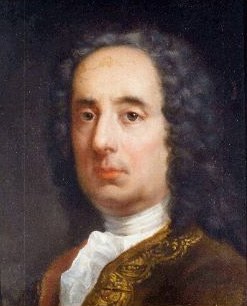
Griselda is an opera in three acts composed by Antonio Maria Bononcini. The opera uses a slightly revised version of the 1701 Italian libretto by Apostolo Zeno that was based on Giovanni Boccaccio's The Decameron. The opera was dedicated to Prince Maximilian Karl von Löwenstein, the Austrian governor of Milan, who died during the opera's world première on 26 December 1718 at the Teatro Regio Ducale in Milan. Nevertheless, Bononcini's opera was well received and enjoyed several revivals during the eighteenth century.
Griselda is a dramma per musica in three acts that was composed by Giovanni Bononcini. The opera uses a revised version of the 1701 Italian libretto by Apostolo Zeno that was based on Giovanni Boccaccio's The Decameron. The Italian poet Paolo Antonio Rolli was hired to revise the text. Bononcini's opera premiered in London at the King’s Theatre on 22 February 1722. From the opera, an aria "Per la gloria d'adorarvi" is nowadays a famous and popular concert piece, with opera singers such as Oleg Ryabets, or Ramon Vargas.
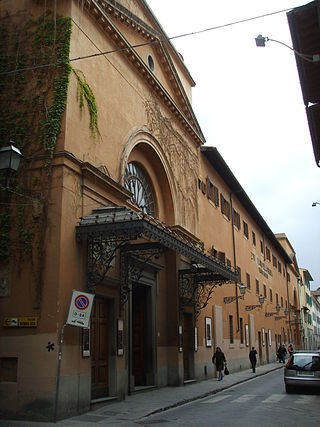
Antonio Salvi was an Italian physician, court poet and librettist, active mainly in Florence, Italy. He was in the service of the grand-ducal court of Tuscany and the favourite librettist of Prince Ferdinando de' Medici. Salvi was one of the developers of the opera seria.
Note La Giuditta may refer to one of several Italian oratorios, further elaborated below.
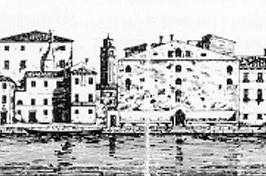
The Teatro San Angelo or Teatro Sant'Angelo was once a theatre in Venice which ran from 1677 until 1803.
Anna Girò, also known as l'Annina del Prete Rosso, la Nina del Prete Rosso, or l'Annina della Pietà, was the stage name of Anna Maria(?) Maddalena Tessieri, an Italian mezzo-soprano/contralto of the 18th century. She is best remembered for her numerous collaborations with composer Antonio Vivaldi who wrote operatic roles for her. She is the singer who performed the greatest number of Vivaldi's operas, the one who kept them in her repertoire the longest time and who made them known across the largest geographical area.

Domenico Giacinto Fontana (1692–1739), also known as "Farfallino", was an Italian castrato singer active primarily in Rome from 1712 to 1736. He specialised in singing soprano female roles and earned the name "Farfallino" for his graceful stage appearance. He was born in Perugia and died there at the age of 47. At times he feared ridicule by performing certain roles, such as a pregnant primadonna.
Giustino may refer to:
Adriano Morselli was a Venetian librettist active between 1679 and 1691. His libretti have been set to music by composers like Antonio Vivaldi, Alessandro Scarlatti, Giacomo Antonio Perti, Bernardo Sabadini, Carlo Francesco Pollarolo and Domenico Gabrielli. His most popular works were L'incoronazione di Dario from 1684 and Tullo Ostilio from 1685, and the unfinished La pace fra Seleuco e Tolomeo from 1691.
Tigrane may refer to: